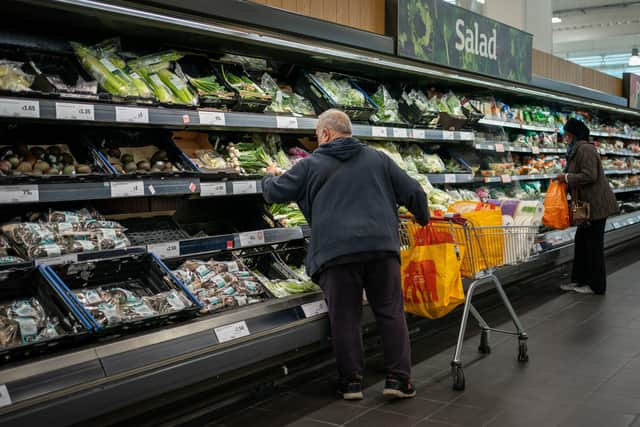Cost-of-living crisis backdrop to lacklustre election campaign
and live on Freeview channel 276
Northern Ireland currently has no functioning Executive, the population is gripped by a cost-of-living crisis and disagreements persist over the post-Brexit protocol.
Yet, despite the Province facing into an uncertain political future, the Stormont election battle never really seemed to spark into life.
Advertisement
Hide AdAdvertisement
Hide AdThere was nothing to rival Arlene Foster’s infamous “crocodiles” comment in 2017 when speaking about Sinn Fein’s desire for an Irish language act.


Indeed, the closest thing to controversy on the campaign trail was probably the ongoing complaints from parties about the destruction of their election posters.
Perhaps this is partly because Sinn Fein has adopted a safety-first approach.
Aware that a number of opinion polls have given the republican party a healthy lead over its DUP rivals, the party has chosen to portray vice-president Michelle O’Neill as the potential “first minister for all”, unwilling to risk the historic possibility of a nationalist party emerging with the most seats at Stormont for the first time.
Advertisement
Hide AdAdvertisement
Hide AdMs O’Neill has mostly sidestepped questions about Irish unity, preferring instead to focus on the cost-of-living crisis and Northern Ireland’s ailing health service.
The DUP has fought a more aggressive campaign. It has channelled its energy into two issues – the NI Protocol and a border poll.
The party collapsed the power-sharing Executive earlier this year in protest at the protocol, and has vowed not to re-enter government until Westminster restores Northern Ireland’s place within the UK internal market.
Leader Sir Jeffrey Donaldson has taken his anti-protocol campaign around NI, joining with TUV leader Jim Allister on the platform at a number of rallies calling for the post-Brexit trading arrangements, and the resulting economic barriers between the Province and the rest of the UK, to be scrapped. He has also consistently said that any Sinn Fein victory in the election would embolden republicans to seek a date for a referendum on Irish unity.
Advertisement
Hide AdAdvertisement
Hide AdUUP leader Doug Beattie, who has absented himself from the anti-protocol rallies, has taken a different path than his unionist rivals in the DUP.
He publicly stated that there would not be a united Ireland in his lifetime or the lifetime of his children and has instead insisted that government should work to resolve the daily issues facing families.
Alliance leader Naomi Long called for a major reform of Stormont rules which mean that all MLAs at Stormont must designate as either unionist, nationalist or other.